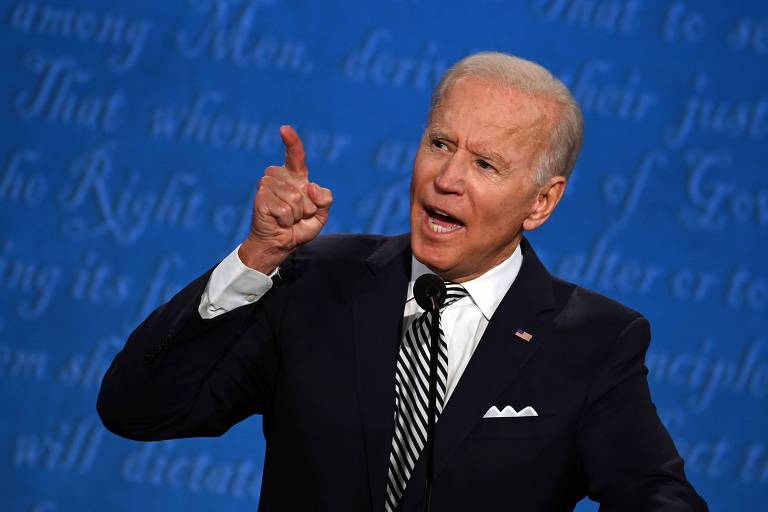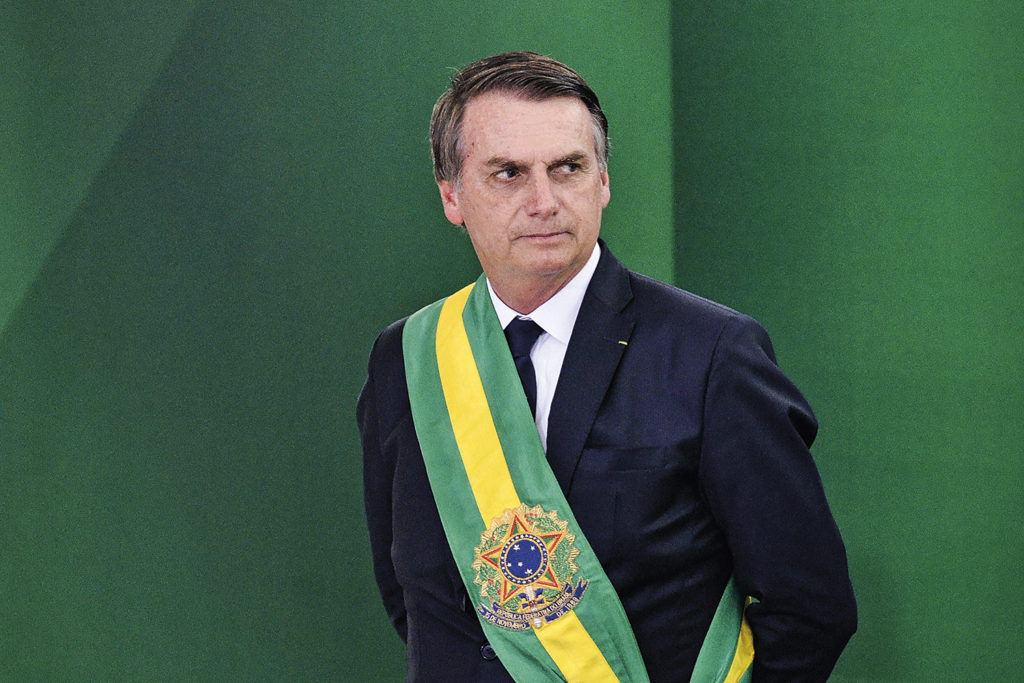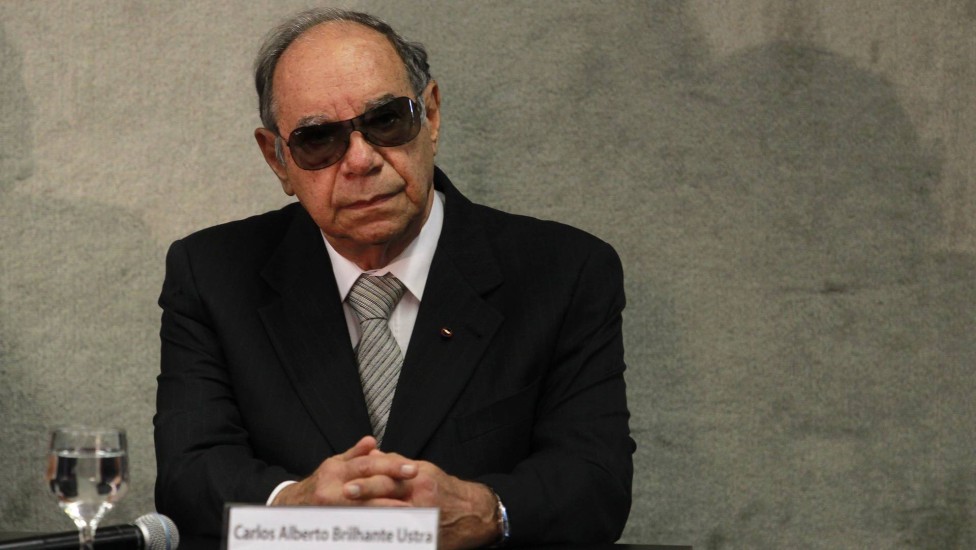RIO DE JANEIRO, BRAZIL – If there was any doubt that Brazilian President Jair Bolsonaro and Democratic presidential candidate Joe Biden are on opposing political sides, the debate between Biden and President Trump over the past week has dispelled them. At the time, Biden, the favorite to win the November 3rd election by the current polls, criticized the Amazon devastation and even contemplated economic sanctions for the country.
However, the environment is far from being the only source of disagreement between Biden and Bolsonaro. The former US vice-president is at the heart of one of the undertakings for which the current Brazilian President has shown the most contempt and resistance: the investigation, by the CNV (National Truth Commission), of crimes and violations committed by public officials during the military dictatorship between 1964 and 1985.
On June 17th, 2014, Biden, then Vice-President in the Barack Obama administration, landed in Brasília with a particular item in his luggage: a hard drive with 43 documents produced by American authorities between 1967 and 1977. Based on the information provided not only by victims, but also by informants within the Armed Forces and the police, the American reports detailed information on censorship, torture, and murders committed by Brazil’s military regime.

Until then, the majority of these documents were considered classified by the US government, which supported and cooperated with the dictatorship for much of the time the military were in power.
Biden knew what it was all about. He also knew that he would have a real impact by handing over the data to then Brazilian president Dilma Rousseff, herself one of the opposition activists tortured in the dungeons of the dictatorship.
It is certain that the American government could have forwarded the material through the Internet, through the embassy in the United States. But the Obama-Biden administration had intended to record its name at the opening of the documents, as a manifesto for transparency and human rights.
More than that, it wanted to improve diplomatic relations based on the exchange of information highly relevant to the history of countries like Brazil, Argentina and Chile.
In Brazil’s case, this was even more strategic after the disclosure, months earlier, that the US National Security Agency (NSA) had been spying on conversations by the Brazilian president, which undermined the foundation of relations between the two countries.
“I am happy to announce that the United States has started a special project to declassify and share with the National Truth Commission documents that can shed light on this 21-year dictatorship, which is obviously of great interest to the President,” said Biden, smiling, alongside Dilma.
Without dictatorship
Biden’s very definition of the military regime is today rebutted by Bolsonaro, who denies there has been a dictatorship in the country.
“I hope that by looking at documents from our past we can focus on the tremendous promise of the future,” concluded Biden.
Five years after this meeting between Dilma and Biden, Brazilian President Jair Bolsonaro fully discredited the CNV’s disclosures, of which the documents brought by Biden are a critical component. “The 1964 issue, there are no documents as to whether they killed or not, that’s baloney, ok?”, said Bolsonaro.
The President was answering the press, which was challenging a statement he made the day before to attack the president of the OAB (Brazilian Bar Association), Felipe Santa Cruz. Bolsonaro said to Santa Cruz that he could enlighten him on how his father had disappeared.
According to the National Truth Commission, Fernando Augusto Santa Cruz Oliveira, the OAB president’s father, was last seen in February 1974, when he was arrested in Rio de Janeiro by DOI-Codi (secret police) officers. Oliveira was never seen again. He died at the hands of these officers.
“Truth Commission? Do you believe in a Truth Commission? Do you want a document for that, my God in heaven? A document is when you get married when you get divorced. Do they have a document stating otherwise?” added Bolsonaro.

But, after all, what is in Biden’s documents?
“The suspect is left naked, sitting alone in a completely dark cell or refrigerated for several hours. In the cell, there are loudspeakers, which emit shouts, sirens, and whistles in high decibels. The detainee is then questioned by one or more officers, who tell him/her what crime they believe the person has committed and what measures will be taken if he/she does not cooperate. At this point, if the individual fails to confess, and if the officers believe he/she has valuable information, he/she is subjected to increasing physical and mental suffering until he/she confesses”.
“He/she is placed naked, in a small dark room with a metallic floor, which conducts electrical currents. The electrical shocks, though allegedly of low intensity, are constant and ultimately become unbearable. The suspect is kept in this room for many hours. The result is extreme mental and physical exhaustion, particularly if the person is subjected to such conditions for two or three days. Throughout this time, he/she is not given food or water.”
The text quoted above is an excerpt from a seven-page document sent by the US Consulate in Rio de Janeiro to the State Department in 1973 and brought by Biden during his visit.
The diplomatic note states that 126 people were subjected to similar conditions to those reported, in addition to other forms of abuse, such as the “parrot’s perch”. The report is made not only based on victims’ testimonies, but also on military informants, whose identity is protected by redacted passages in the document.
Details
“This is one of the most detailed reports on torture techniques ever declassified by the US government,” Peter Kornbluh, director of the Brazilian Documentation Project at the US National Security Archive in Washington D.C., told BBC News Brasil.
Also according to Kornbluh, “American documents help shed light on several atrocities and techniques (of torture of the regime). They are contemporary evidence of human rights abuses committed by the Brazilian military. Almost everyone believes them. The people who prefer not to acknowledge the truth about what has been done are the Bolsonaros and those who actually committed these crimes.”
But Bolsonaro does not always deny that the dictatorship has committed human rights violations. In July 2016, in an interview with Joven Pan radio, he said: “The dictatorship’s mistake was to torture rather than kill.”
And two years later, in mid-2018, when he was in the presidential election campaign, challenged by the information of a CIA report, released in 2015 in the scope of the same Biden declassification project, that President Ernesto Geisel had approved the summary execution of opponents to the regime, the current president said to Radio Super Notícia: “To make mistakes, even at home, everyone makes mistakes. Who has never slapped his son’s bottom and then regretted it? It happens.”
Torture and death
One of the other documents brought by Biden shows that the repressive machine of the Brazilian dictatorship not only tortured but killed. In it, the American Consul General in São Paulo, Frederic Chapin, says he heard the account of “an informant and professional interrogator working for the Osasco Military Intelligence Center” in São Paulo.
In a May 1973 telegram, Chapin writes: “He (the informant) explained how he had broken up a ‘communist’ cell involving a civil police officer. The police officer was forced to speak after being electrocuted in the ears and mentioned his connection to a friend, who was immediately arrested. She was not cooperative, however, so she was left on the parrot’s perch for 43 hours, with no food or water.”
“That broke her, our source told us. Torture, one way or another, is common practice in interrogations in Osasco. He also gave us a firsthand account of the murder of a subversive suspect, which he described as ‘stitching’ the suspect, that is, shooting him from head to toe with an automatic weapon”. The term ‘stitching’ is a reference to a method of disfiguring the corpse and avoiding its future identification.
Murders committed by the regime
Consul Chapin further reports that “several security agents told us that terrorist suspects are killed as standard practice. We estimate that at least twelve were killed in the São Paulo region last year (1972).”
Recording the deaths in São Paulo, Chapin points to the work of Army Colonel Carlos Alberto Brilhante Ustra, the head of São Paulo’s DOI-Codi, one of the country’s main agencies of repression, between 1970 and 1974. Ustra was the first Brazilian military officer to be convicted by the Courts for crimes of torture. He is also considered a hero and a reference by Bolsonaro, who has already claimed to have Ustra’s work as a bedside book, “A verdade sufocada” (The smothered truth).
“I am a captain of the Army, I knew and was a friend of the colonel, I am a friend of the widow. (…) Colonel Carlos Alberto Brilhante Ustra was granted the highest Army commendation, the Pacifier Medal, he is a Brazilian hero,” said Bolsonaro in 2016.
While serving as a federal deputy, on the day of the vote to open impeachment proceedings against then President Dilma Rousseff, that same year, Bolsonaro cited the military officer in his vote: “They lost in 1964, they lost in 2016. (…) For the memory of Colonel Carlos Alberto Brilhante Ustra, for the Army of Caxias, for our Armed Forces, for Brazil above all and for God above everyone, my vote is yes”.

“Only terrorists”
Another of Biden’s documents challenges one of Bolsonaro’s main arguments about the period: that the military regime only arrested, tortured, and killed “terrorists”.
In December 2008, when Institutional Act No. 5, an ukase of the dictatorship that revoked individual freedoms, was celebrating its 40th anniversary, then federal deputy Bolsonaro took the floor of the Chamber to say: “I praise the military that, in 1968, imposed the AI-5 to contain terror in our country, (…) But I praise the AI-5 because, for the second time, it stopped those on the left-wing who grabbed weapons, kidnapped, tortured, murdered, and committed acts of terror in our country”.
But in October 1970, the US diplomatic service in Brazil sent a report to the State Department recording the accounts of an American citizen, Robert Horth, who had been confused with an extremist and arrested in the DEOPS, the São Paulo political police facility.
Horth was not a subversive communist and told US diplomats that “five of the six prisoners in their cells were completely innocent of the charge of political subversion.”
Another document, dated December 1969, strengthens the questions about the real crimes of the targets chosen by the repression by reporting that Dominican nuns were arrested, humiliated and tortured in Ribeirão Preto, São Paulo.
“More than providing new facts, the American documents were crucial because they proved many events from an unsuspecting source. We are, after all, talking about US diplomacy reports, which had no sympathy for left-wing oppositionists and which endorsed the military,” Pedro Dallari, CNV reporter, told BBC News Brasil.
Evidence that the American government was openly in favor of the regime at that time can be found in a July 1972 communication by US Ambassador William Rountree. In the letter, he alerts the State Department that any attempt to publicly criticize what he qualifies as “excesses” committed against human rights could “undermine our overall relations”.
National Truth Commission (CNV)
American documents became particularly important to the CNV given the Brazilian Armed Forces’ refusal to provide evidence to corroborate the testimonies of torture victims on military facilities.
“While the American documents were coming in, we were getting feedback from the military stating that their investigations had not found anything,” says Dallari.
Kornbluh agrees that, while much of the Brazilian documentation of the period may now have been lost, the American records are a major source for accessing Brazilian history.
“Some of the Brazilian military officers successfully hid most of their own documents and kept it out of public scrutiny. And they managed to escape any kind of legal responsibility for their crimes against human rights. Thus American documents provide a reliable account of at least some cases. And if things change in Brazil, these are evidence of crimes that can still be prosecuted,” says the expert, who mentions the 1979 Amnesty law that prevented officials and opposition activists from being held criminally accountable for crimes committed during the dictatorship.
In 2014, during the CNV’s efforts, the Brazilian Army stated that it would not give its opinion on the acknowledgement of the Brazilian State with respect to torture, while the Air Force and Navy said they had no evidence to attest to, nor to refute the accusations of human rights violations in the 1960s and 1970s.
What does the record say about the Brazil-US relationship under a potential Biden government?
According to Dallari, although the 1964 coup was endorsed by the US government, then under the rule of Democrat Lyndon Johnson, in recent decades the Democrats have made it clear that they have an interest in cooperating with investigations into the atrocities committed by governments in the region and the US role in them.
“I have no reason to doubt that Obama and Biden had a real interest in disclosing this information. And the first American president to oppose human rights violations in the region was another Democrat, President Jimmy Carter,” he says, in reference to the American president between 1977 and 1981.
In fact, since the Clinton administration in the 1990s, classified documents on Latin American dictatorships have become public. But it was during the Obama administration that this disclosure of records took on a foreign policy dimension, in what Kornbluh termed “disclosure diplomacy”.
In addition to Brazil, Argentina and Chile also gained access to documents in an effort by the United States to improve their image and relationship in the region.
And with Biden and Dilma, the expert states that this type of diplomacy reached one of its highest points, since relations were reconnected after Biden’s visit in 2014.
“I am sure he was briefed on the content of the documents. And it is an important task to carry these documents describing serious human rights violations during the military era. It was certainly a learning experience for Vice-President Biden and a poignant reminder to him of the horrors committed,” says Kornbluh.
In talks with BBC News Brasil, advisors to Biden’s campaign have said that the subject of human rights is central to the candidate, particularly in Latin America.
But while there is still a large, untouched record of the history of Brazil’s dictatorship, particularly information from intelligence agencies like the FBI and CIA, it is unlikely that Biden will make any new disclosures should he win the election.
The reason for this is that US classified documents on other countries can only become public if the governments of those nations request access to the Americans. And today there is no interest in this kind of information in the Brazilian government.
“At that time, the disclosure was important and helped the two countries reconnect. Now, in a potential Biden government, with Bolsonaro in Brazil, it is a completely different context. But if Bolsonaro commits human rights violations, the Biden administration would act much faster and more negatively than Trump and would pressure Bolsonaro to stop,” says Kornbluh.
Source: UOL

